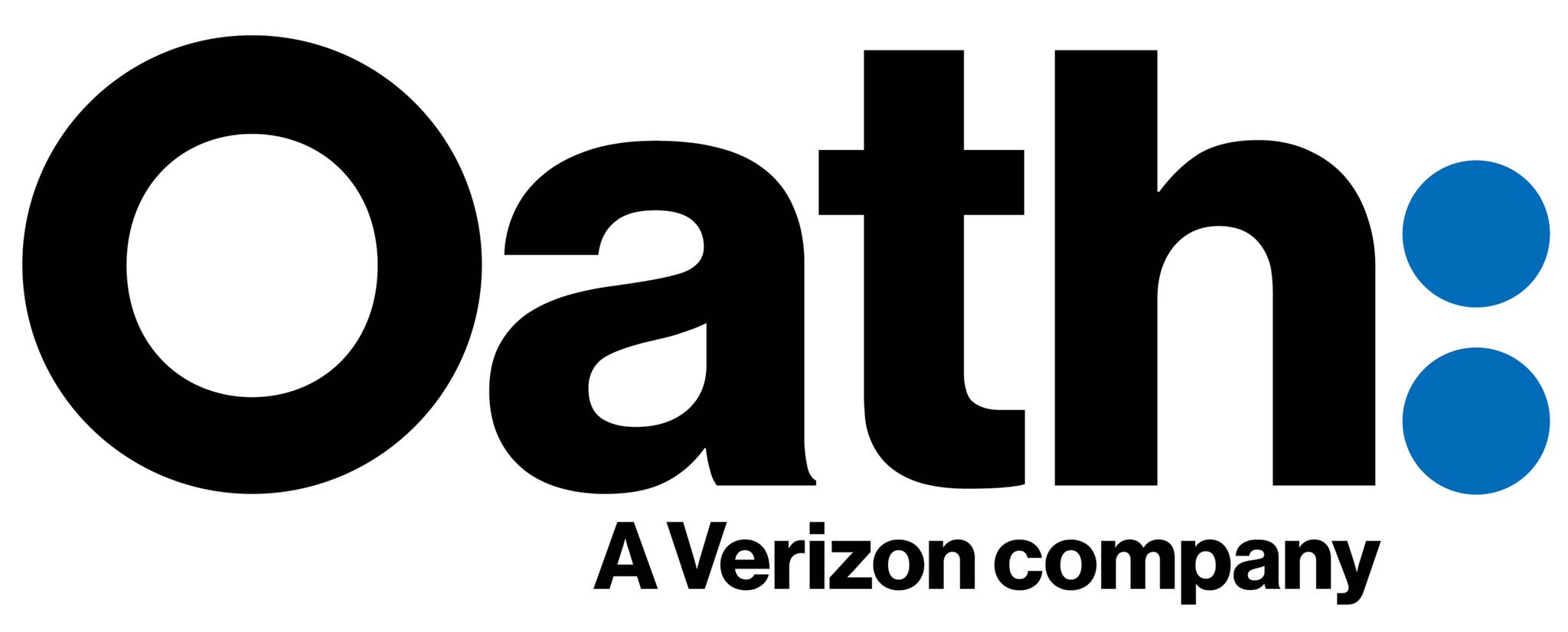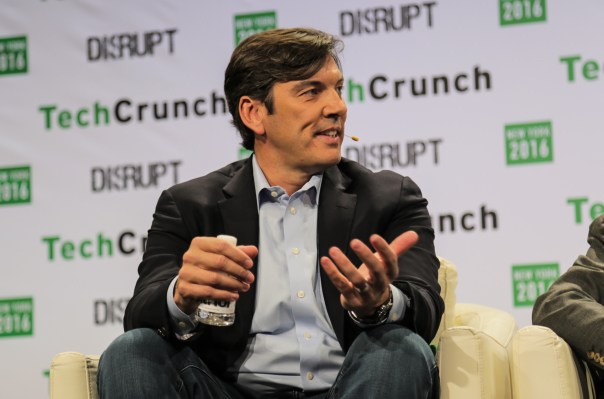You weren’t supposed to know about Oath. Not this week, at least. And certainly not under these circumstances. The newly minted and already much maligned poster child of the forthcoming face of Verizon’s Yahoo acquisition was developed in-house as a B2B brand, designed for customer and partner relationships. That’s according to AOL CEO Tim Armstrong, who spoke to TechCrunch as the blogospheric snark finally began to abate following a day of Tronc-esque takedowns.
Armstrong explains that the company was never committed to promoting Oath as the new face of an AOL/Yahoo merger. Instead, it was intended to exist as a way to “create an open lane for each of our bands to have their space and to have a connectivity behind them.”
In slightly less corporate terms, the new four-letter name was intended to serve as a sort of unified banner under which Verizon can pitch its various brands to other businesses, while maintaining the individual value of its different content brands. Yahoo branding, meanwhile, will continue to exist amid the Verizon/AOL/Oath branding stew.
We’re in a global-empowered consumer society right now, so we’re going to end up with a lot of opinions right now. But the reality is that ‘Oath’ rhymes with ‘growth,’ and that’s our job, to grow
But a Business Insider story that broke yesterday beat the companies to the punch, leaving them scrambling to convey the new branding. Armstrong quickly issued a tweet, putting to rest mounting doubt regarding the veracity of the branding effort. “Billion+ Consumers, 20+ Brands, Unstoppable Team. #TakeTheOath. Summer 2017.”
The logo attached was simple Helvetica, along with a giant blue colon that seems to serve as some comprise between the Aol period and Yahoo exclamation mark — and, the company no doubt hopes, some open-ended peek into the future. The acknowledgement of the leak and the branding push that followed were rushed, out of necessity — though Armstrong says the company had a plan in place for the seemingly inevitable leak, roughly a month or so before it had hoped to officially reveal the information to the public.
Even so, he admitted that certain aspects were rushed. The uncomfortably forceful (and borderline cultish) #TakeTheOath hashtag tops that list.
But Armstrong insists that that publicity surrounding the announcement, which included the online media equivalent to a thinking face emoji, was ultimately a net positive for a brand looking to reestablish itself around an upcoming merger and a number of negative news items surrounding mounting security concerns over the course of the last several months.
“I think the fact that people care so much is important,” says Armstrong, adding, “We want people to have opinions. We’re in a global-empowered consumer society right now, so we’re going to end up with a lot of opinions right now. But the reality is that ‘Oath’ rhymes with ‘growth,’ and that’s our job, to grow.” At the very least, it’s hard to argue with the basic rhyme scheme.

Verizon’s acquisition timeline involves some key staffing announcements set for later in the quarter. Armstrong explains that while there may be some redundancy in content coverage as Yahoo’s brands fold into AOL’s, the company is not afraid of some overlap. AOL, after all, does already own both TechCrunch and Engadget, so some repetition in coverage is, perhaps, to be expected. And the company is looking toward existing channels to cross-promote content — Huffington Post stories showing up on Yahoo, for example, or Yahoo Sports syndicating to AOL Sports.
The more pressing question, so far as he’s concerned, is in the corporate space, where “there’s more overlap in terms of some […] areas of the business.” He says the companies are currently in the process of “carving [out] the executive team.” What, precisely, that means for specific names, the company won’t say yet. That’s set to come with the big announcement arriving later in Q2, when the acquisition is set to close.
Armstrong also wouldn’t directly confirm or deny a Recode story that broke at roughly the same time as the Oath news yesterday, stating that Yahoo CEO Marissa Mayer wouldn’t be coming along for the ride. Nor would he say whether the decision had been definitively reached one way or the other.
“Marissa loves Yahoo, and I think she wants to see it be successful in the future, and I feel the same about AOL and all of the AOL brands, so I think there’s a good alignment,” Armstrong says. “And from the executive standpoint, we’ll put all the right people in the right seats. We’re in the process of making those decisions right now, so over the next four weeks. We don’t have anything to announce right now.”
Meantime, things are apparently largely going according to plan. And Armstrong says, in spite of dropping its asking price for Yahoo, Verizon didn’t reconsider its purchasing plans in the wake of revelations around multiple security breaches, calling them “a reality of life.”
“First, we’ll be putting in bigger security investments in both companies,” says Armstrong. “We’ve already started doing that at AOL, and we’ll be doing that at Yahoo. The second is we’re going to be very careful about the systems integrations. I think we’ll probably be taking more time on system integration. And the third thing is, I think being really careful about the user trust levels overall.”
While it’s certainly true that hacking is a widespread reality, the breaches certainly soured the deal in the eyes of many, but Verizon is still convinced of consumer confidence around the Yahoo brand and its myriad subcategories. And the executive adds that a combined Yahoo/AOL content ecosystem could help combat growing concerns around “fake news” as “part of a trusted ecosystem.”
And in spite of some initial suggestions that the company had let at least one key detail slip, its attention, Verizon does, indeed own Oath.com. “We’ve been working on this for a fairly significant amount of time,” he says. “Again, I’d say we were prepared for yesterday, and we’ll in the next couple of weeks, you’ll see more of the full launch and full schedule, but again, in a differentiated way.”
The value of Oath as a brand, B2B or otherwise will surely be the subject of much conversation in the coming weeks, as Verizon offers up more insight into how it slots in with the company’s overall strategy. Meantime, it’s likely to do some tinkering with hashtags, rhyme schemes and the like, before its more controlled public unveiling.
TechCrunch is owned by AOL, which is, in turn owned by Verizon.
